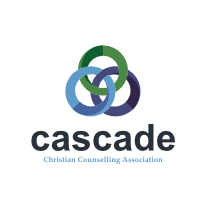
Humans are wonderfully made, and created to engage with each other in community. To be connected is the most fundamental and essential ingredient for mental health, strong relationships and productive lives. Currently, as the waves of confusion, fright, hate, hurt, and loneliness rise, the raw and painful reality of disconnectedness becomes ever clearer. “ALL the lonely people – where DO they all come from?”, the Beatles asked in 1966. That might be a good question indeed, since it prompts a follow up question: How do we respond when a friend, spouse, child, a colleague, or an acquaintance is sad, moody or ‘out of touch’? Do we connect with purpose, or do we avoid it, thinking ‘… it will pass, he’s just in a funk, just give him some time, and he’ll snap out of it… again…’
Consider developing the habit of intentionally checking in. In some cases it can make the difference between life and death, and it can begin with a sincere question out of genuine concern. “Say, have you been feeling down or blue lately? You seem to be out of sorts….” If the answer is yes, ask her to describe what she means by that. “How long have you been feeling this way?… When did you first notice the change?… Have you ever experienced this before?… If so, what did you do to get better?”
SIG E CAPS is a useful abbreviation to use to assess for either low mood or depression. It stands for Sleep, Interest, Guilt, Energy, Concentration, Appetite, Psychomotor, and Suicidal ideation. Counsellors use it as a screening tool, and it also offers prompts for everyone to explore what might be troubling him or her. Any one these conditions, when compromised, can contribute to low and changed mood.
The S of suicidal ideation requires extra attention and, possibly, intervention… ‘You say you are doing fine, but how are you doing, really?’ opens up conversation and displays a posture of genuine care and concern. Consider having this standard, scripted question at the ready: ‘Have you thought about hurting yourself?’ Matthew Sleeth observes: “At some level, every person knows that committing suicide is wrong. I think that most want to be asked whether they are thinking about it. They want to share the burden. Most want to be stopped.”[2]
Indeed! Charles Spurgeon, the Prince of Preachers, was stopped. He won the battle with chronic depression. By pushing back against loneliness he remained connected with compassionate, caring individuals. He led a very productive life that included many ‘dark nights’ of the soul. So did Mother Theresa, despite decades of deep, chronic depression. And might I mention Martin Luther, John Calvin, Handel, Charles Dickens, Florence Nightingale , Abraham Lincoln, King David and Prophet Elijah?
When you or someone you know encounter episodes of low mood, long periods of sadness or depression that just won’t leave, please don’t hesitate to connect with us at Cascade Christian Counselling.
[1] https://www.spurgeon.org/resource-library/sermons/elijah-fainting/#flipbook/. Retrieved 03.10.23.
[2] Sleeth., M. Hope Always. How to be a force for life in a culture of suicide. Tyndale, Carol Stream, Ill. P. 123. (Italics are mine, HS)
